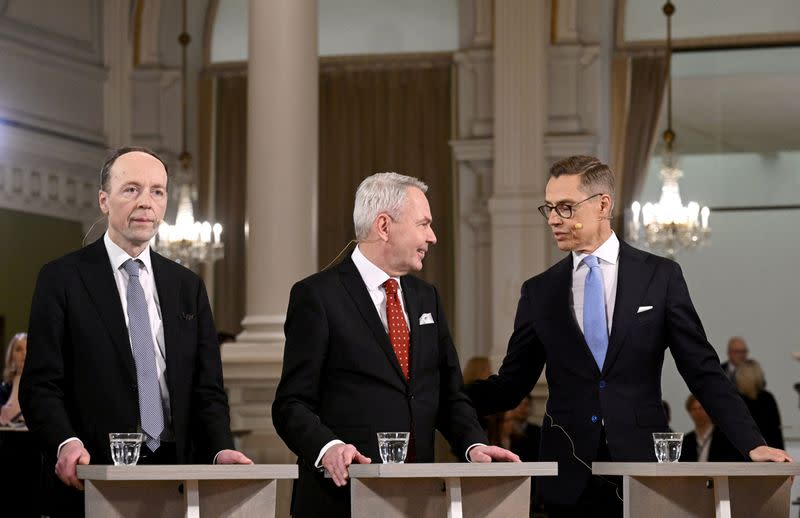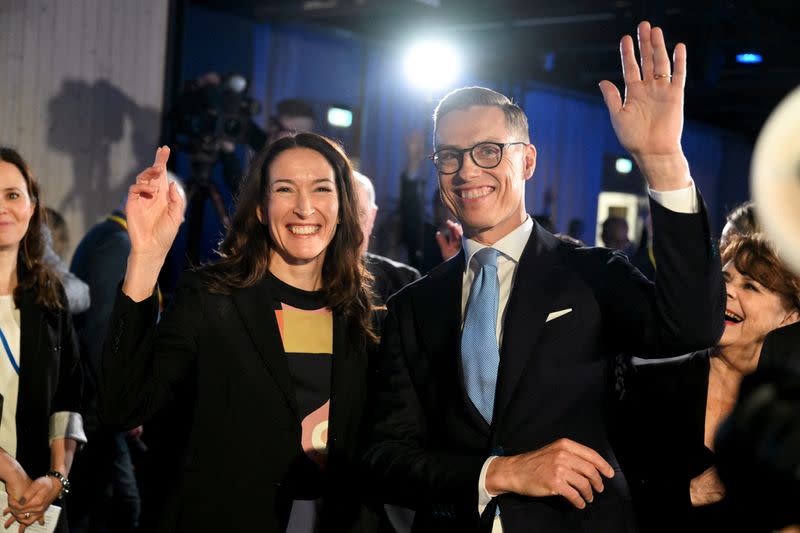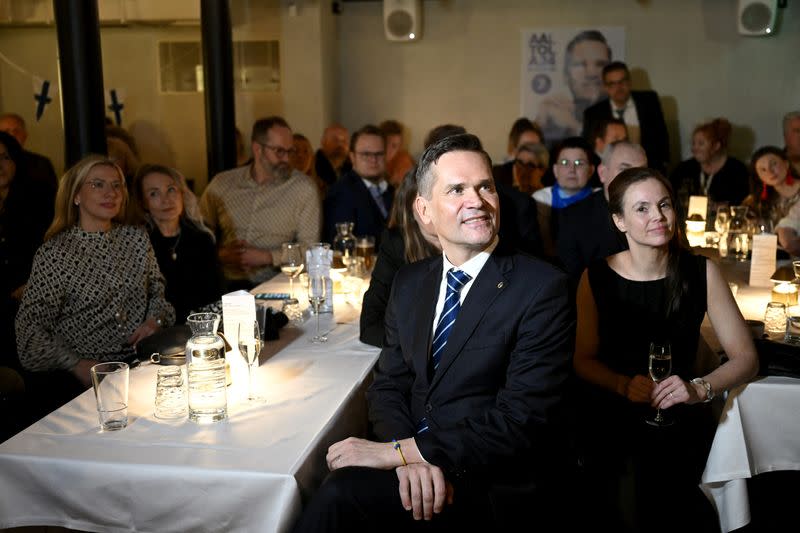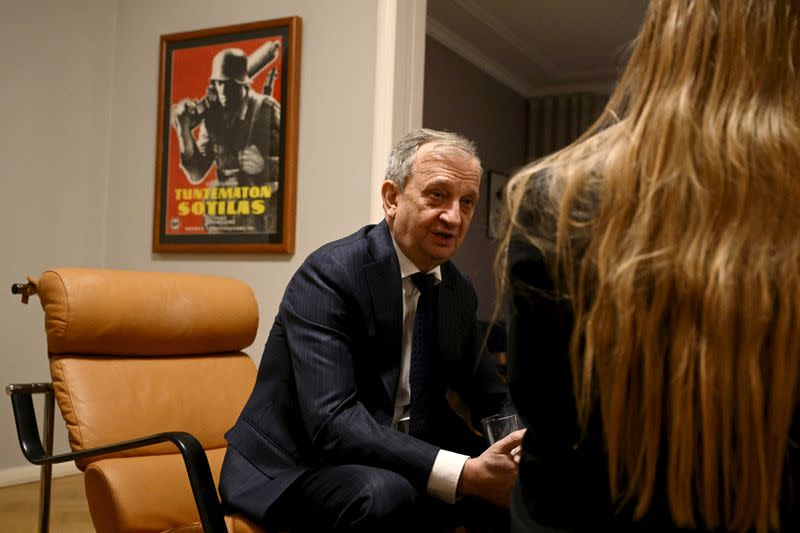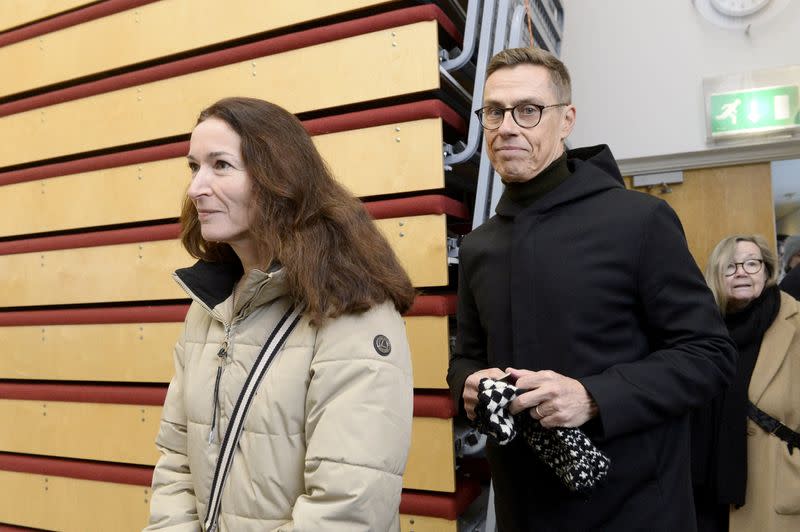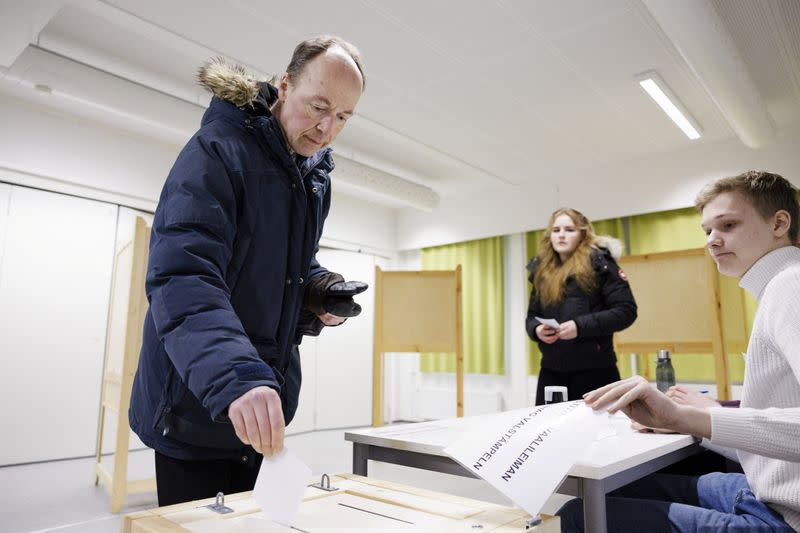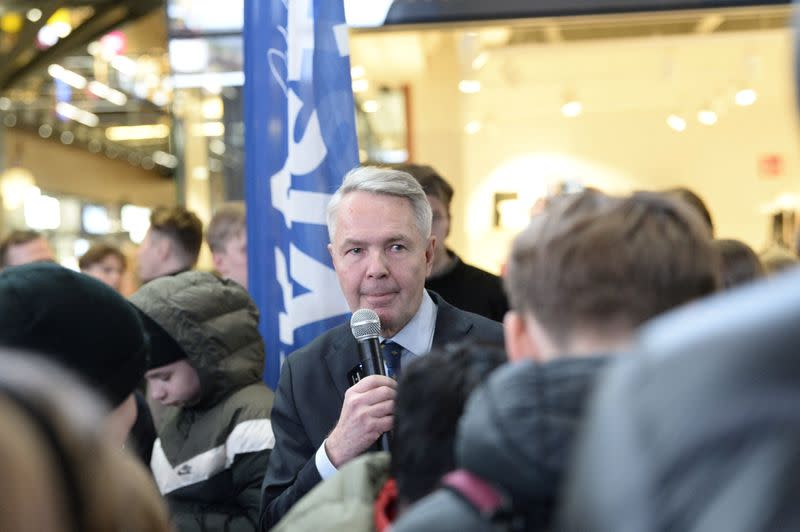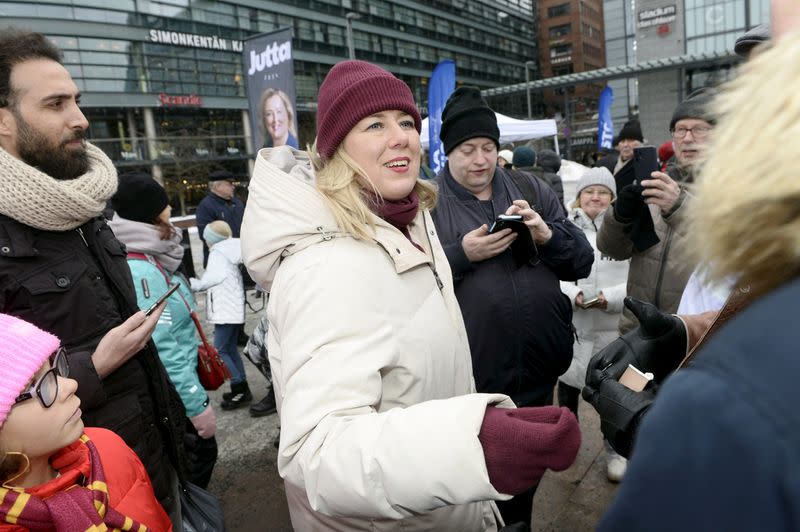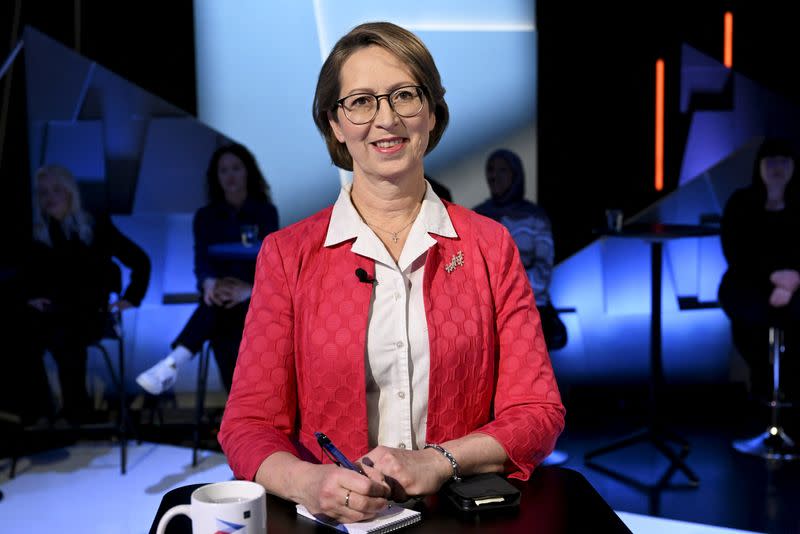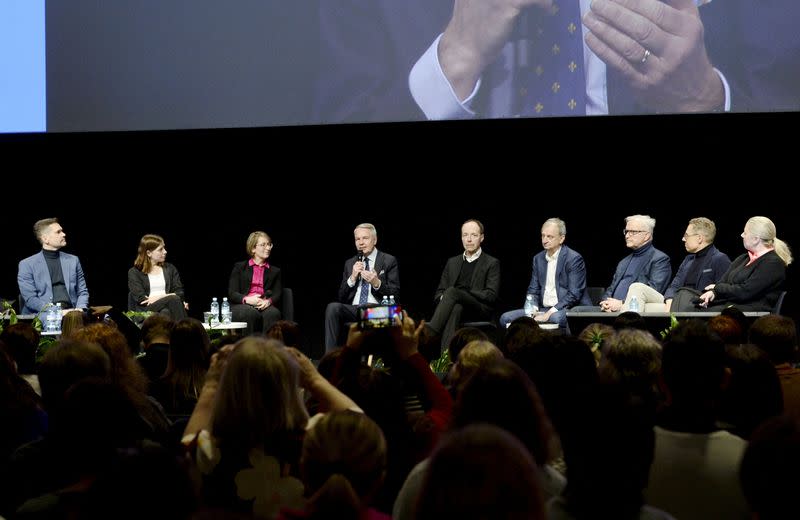Stubb and Haavisto continue to 2nd round in Finland's presidential race
By Anne Kauranen and Essi Lehto
HELSINKI (Reuters) -Centre-right candidate Alexander Stubb of Finland's National Coalition Party narrowly won the first round of the country's presidential election on Sunday and will face liberal Green Party member Pekka Haavisto in a run-off, official data showed.
With all votes counted, Stubb came first with 27.2% support, followed by Haavisto on 25.8%, and nationalist Jussi Halla-aho third with 19.0% support. A run-off between the top two will be held on Feb. 11.
Finland is electing a new president to lead the country's foreign and security policy in its new role within NATO after it broke with decades of non-alignment to join the Western defence alliance in response to Russia's invasion of Ukraine.
"You know what, we made it to the final, but the competition will only begin now," Stubb, a former prime minister, told his supporters.
Stubb's rival for the second round, former foreign minister Haavisto, is a human rights defender who has worked also as a peace negotiator.
Haavisto would become Finland's first openly gay president if elected.
"Now our task is to reach those whose candidate is not in the second round," Haavisto said in a speech to his supporters.
Voter turnout stood at 74.9%, official data showed, up from 69.9% in the last presidential election in 2018.
FOREIGN POLICY LEADER
Finland's president leads on foreign and security policy in close cooperation with the government and represents the country at NATO meetings, while also acting as a commander-in-chief of the Finnish Defence Forces.
The new president will take the helm of Finland's foreign and security policy from incumbent Sauli Niinisto, who is retiring after two consecutive six-year terms.
Both Stubb and Haavisto are supporters of Ukraine and have called for tough measures against Russia.
During their electoral campaigns, Stubb and Haavisto steered towards the political middle, while Halla-aho maintained his right-wing conservative profile.
In Helsinki one advance voter, 26-year-old Leena Boksha, said it was particularly important to vote this time because of the war in Ukraine and the difficult situation it created.
She said Stubb, seen by Finns as a cosmopolitan pro-European, was the right person to head the country's foreign policy.
"I voted Alexander Stubb because I think he's very good at dealing with other countries and he has a good relationship with people outside Finland," said Boksha, who was out with her baby to accompany a friend to vote on Sunday.
Jere Markkinen, a 22-year-old student in mechanical engineering, took a different view.
"I don't think he (Stubb) would be a very good president because he doesn't seem like he wants to represent the people, he wants to represent himself," Markkinen said, adding he had voted for Haavisto in advance.
"He is experienced in foreign politics and is known for generally acting smart, unlike some other candidates."
The Nordic country's admission to NATO last year drew threats of "counter measures" from its much larger neighbour. In December, Finland closed its entire border with Russia to passenger traffic in response to a surge in migrants trying to cross. Moscow denied Finnish charges that it was sending the migrants.
NATO PRESIDENT
The 55-year-old Stubb is a pro-European fiscal conservative, who described himself as "moderate" in an interview with Reuters ahead of the election.
Stubb said the next president would not only be the first Finnish NATO president, but also "a Western president in many ways", calling for a leaning towards countries such as the U.S, the UK and Finland's Nordic neighbours in foreign policy.
"I think that Finns are searching for a new era president," Stubb told public broadcaster Yle on Sunday.
Haavisto, who was runner-up to incumbent president Niinisto in 2018 and 2012, led Stubb in polls for months, but the tide turned in December.
During the electoral campaign, candidates have competed in setting the toughest stance against Russia, which does not benefit Haavisto, who is known as a left-leaning liberal, University of Helsinki political scientist Johanna Vuorelma told Reuters ahead of the election.
"In the discourse on border measures, there is clearly a hardening so that the human rights perspective is pretty much on the margin at the moment," she said.
"I would see that this setup benefits right-wing conservatives more than left-wing liberals," Vuorelma said, adding that Haavisto was among candidates who have had to seek a harder line to appear credible.
(Reporting by Anne Kauranen and Essi Lehto in Helsinki, and Elviira Luoma in Gdansk; Editing by Terje Solsvik, Hugh Lawson, David Holmes and Leslie Adler)

